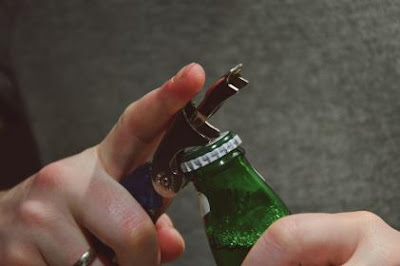Maryland Court of Special Appeals Limits Application of New Social Host Liability
Michael
Hansberger v. Bradley Smith, et. al., 2016 Md. App. Lexis
82 (Md. Ct. Spec. App. July 27, 2016)
Earlier this summer, the
Maryland Court of Appeals issued an opinion in Manal Kiriakos v. Brandon Phillips and Nancy Danakos, et. al. v. Linda Stapf (“Kiriakos”)[1] that
expanded imposition of civil liability to social hosts for the torts committed
by their intoxicated, under-aged guests. The Kiriakos court
recognized this limited form of negligence liability based on violations of
Crim. Law § 10-117(b), which prohibits a person from knowingly furnishing
alcohol to minors, and prohibits knowingly and willfully allowing a minor to
possess or consume alcohol at a residence that he or she owns or leases, and in
which he or she resides. On July 27, 2016, the Maryland Court of Special
Appeals issued its opinion in Michael Hansberger v. Bradley Smith, et. al. (“Hansberger”).
The Hansberger decision further clarifies social host
liability as identified in Kiriakos, holding that it can only be
applied to social hosts who knowingly and willfully allow
an individual under the age of 21 years to possess or consume alcohol.
The Hansberger case
arose when a party was advertised and thrown by Travis Riley on his parents’
property. Travis threw the party without advising his parents of it,
without obtaining their consent, and while his parents were not at home.
Many of the partygoers were under 21, and although the party
was advertised as “BYOB,” Travis collected a fee from party goers who wanted
to drink from a keg brought by another attendee. At one point during the
party, a fight broke out, causing Travis to eject the attendees. One of the partygoers, Bradley Smith, invited many of the partygoers to move the party to
his parent’s farm 3 miles away. Although Smith’s parents were home that
night, they went to bed before the partygoers arrived and had no knowledge of
the party. The party goers continued drinking while on
the Smith property. Later that evening, another fight broke out,
which resulted in a brick being thrown at attendee, Michael Hansberger, causing
serious and permanent injuries.
Following the incident,
Hansberger filed suit in the Circuit Court for Frederick County against the
Smiths and the Rileys. The Smiths and Rileys filed dispositive motions,
arguing that Hansberger had failed to establish that they had breached a duty
of care owed to him. The Circuit Court agreed, and Hansberger
appealed. The Maryland Court of Special Appeals affirmed the trial
court’s ruling based, in part, on its understanding of social host liability as
described in Kiriakos.
The facts of the Kiriakos cases
and the Hansberger case are similar in many regards. In
both cases, a party was held in a home or on the premises of a residence where
alcohol was consumed by individuals under the age of 21. Both cases
involved an intoxicated underage party attendee that, due to their intoxication,
acted in a way to cause death or serious bodily harm to another.
However, there is a key
distinction between the situations addressed in Kiriakos and Hansberger: the
knowledge of the owners concerning alcohol consumption on their property. In Kirakos,
there was evidence that the owner of the residence served alcohol to minors, or
was keenly aware that minors were consuming alcohol and may have been
intoxicated. In Hansberger, on the other hand, there was no
evidence that the Rileys knew of the existence of the party thrown by Travis
Riley. Hansberger argued that the Smiths knew or should have known about
the party because deposition testimony elicited that the Smiths heard noise
from other parties on their property in the past. The Maryland Court of
Special Appeals nevertheless agreed with the trial court’s determination that
this was insufficient to demonstrate that the Smiths willfully allowed
minors to drink alcohol on their property.
The Kiriakos decision
will undoubtedly open the floodgates to a new wave of premises liability claims
in Maryland by persons injured by intoxicated minors who consume alcohol on the
property of adult hosts. But Hansberger suggests that
Maryland appellate courts are not quite ready to move forward and adopt dram
shop liability, particularly in the context presented by the "social
host" cases. Hansberger also serves as an important
reminder to insurers and attorneys investigating social host liability claims
that they must investigate the knowledge of the host
property owners and determine whether they knew that
minors were consuming alcohol on the premises, and whether the hosts took steps
to prevent it.
We will continue to
monitor this developing area of the law, and updates will follow.


Comments
Post a Comment